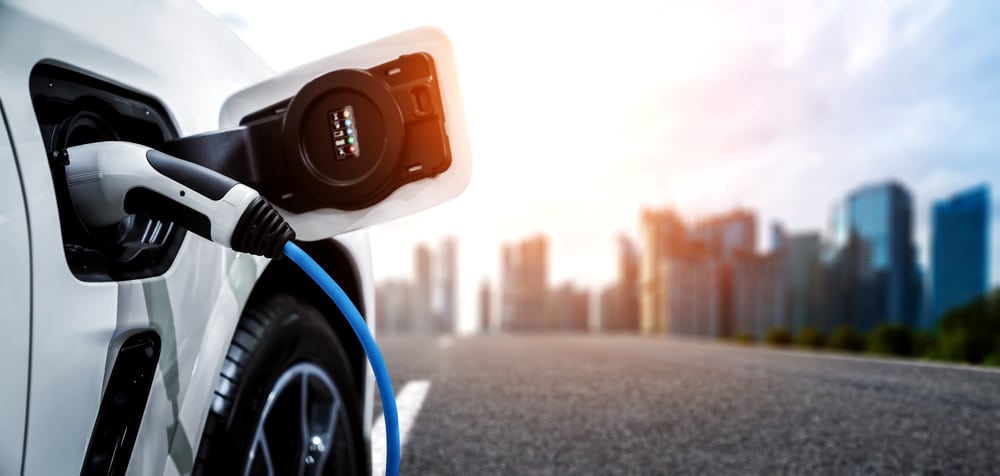The Volkswagen scandal of 2015 – known as Dieselgate – was a pivotal moment for the automotive industry.
It revealed that manufacturers had been using software to cheat on emissions tests. The
scandal illustrated the significant impact of vehicle emissions on air pollution.
Diesel, which are-powered vehicles, the main source of nitrogen oxides (NOx), have been causing widespread health problems across European cities, including respiratory and cardiovascular diseases.
Since the discovery of the emissions scandal and the outpouring of diesel emission claims, the European Commission has been progressively tightening vehicle emission standards.
However, these measures have not been enough to tackle the long-standing issue of air pollution, forcing the European Union to propose bolder solutions.
Why must Europe move towards electric vehicles?
The European Commission’s draft legislation would require that from 2035, all new cars sold in the EU emit zero greenhouse gas emissions (ie. they must be electric or hydrogen fuel cell vehicles).
This new policy would apply to passenger cars and vans, and manufacturers that fail to meet the new targets would be heavily fined. The move to zero-emission vehicles is part of the EU’s wider goal to achieve climate neutrality by 2050.
Road transport accounts for around 25% of the bloc’s greenhouse gas emissions, and the shift to zero-emission cars is essential in ensuring that the EU can achieve its ambitious climate targets.
Italy, Poland, and Bulgaria have expressed their opposition to the proposed law, but it is anticipated
to be supported by most EU countries. The disagreement arose when Germany’s Free Democratic
party, part of the ruling coalition, withdrew its support for an EU plan to ban the sale of new internal
combustion engine cars from 2035 without stronger guarantees for e-fuels.
Subsequently, the German government renegotiated the terms and obtained additional concessions regarding the future use of e-fuels, which have yet to be widely available.
What are the challenges of the electric vehicle transition
The proposed legislation is a significant step in the push to reduce carbon emissions from the transport sector, but it also poses a significant challenge for the automotive industry.
While major car manufacturers such as Volkswagen, BMW, and General Motors have already announced plans to move towards electric cars, smaller manufacturers may struggle to adapt to the new targets.
Similarly, the automotive supply chain may face significant disruptions as demand for raw materials
for electric vehicle production increases.
The transition towards zero-emission cars also means that countries with weaker EV infrastructure
must ramp up their efforts. This includes investment in charging points, building EV-friendly housing
complexes, and updating electricity grids. Countries like Germany, home to major car manufacturers, have been criticised for falling behind in this regard.
Another significant challenge is the cost of electric vehicles, which are still considerably more
expensive than conventional cars. Over time, this cost disparity is reduced, but the initial investment
required to purchase an electric car is still financially burdensome for some people.
Benefits of the policy
The shift to zero-emission cars would benefit the EU and the wider world significantly. According to
the European Environment Agency, road transport is a major source of air pollution, which is
responsible for 300,000 premature deaths in Europe each year. The EU could drastically improve air
quality and public health by reducing the number of internal combustion engine vehicles on the
road.
The ban can potentially make manufacturers take responsibility for diesel claims by redirecting
automakers; attention towards electric and hybrid engines. The policy would also drive innovation in
the automotive industry, developing new technologies that improve battery life, charging time, and
costs, making electric vehicles an attractive option for consumers.
Will this law result in a ban on petrol and diesel cars?
There has been some confusion surrounding whether the new law will result in a ban on petrol and
diesel cars by 2035. However, this is not the case. The law does not ban any specific type of vehicle;
rather, it sets a target for emissions that all new vehicles must meet.
This means that it is still possible for petrol and diesel vehicles to be produced after 2035 as long as
they meet the emissions standards set by the new law. However, this is likely difficult, as these
vehicles typically have higher emissions than electric or hydrogen fuel cell vehicles.
Bottom line
The proposed phase-out of petrol and diesel cars in Europe is a bold move towards combating
climate change and reducing air pollution. The decision by the EU will require significant changes to
the automotive industry, making it a lucrative opportunity for innovation and change.
This shift towards zero-emissions vehicles will bring several challenges, but the benefits of reducing air
pollution and combating climate change far outweigh the negatives. As the EU prepares to become
climate-neutral by 2050, the phase-out of polluting vehicles is crucial to reaching that goal.



